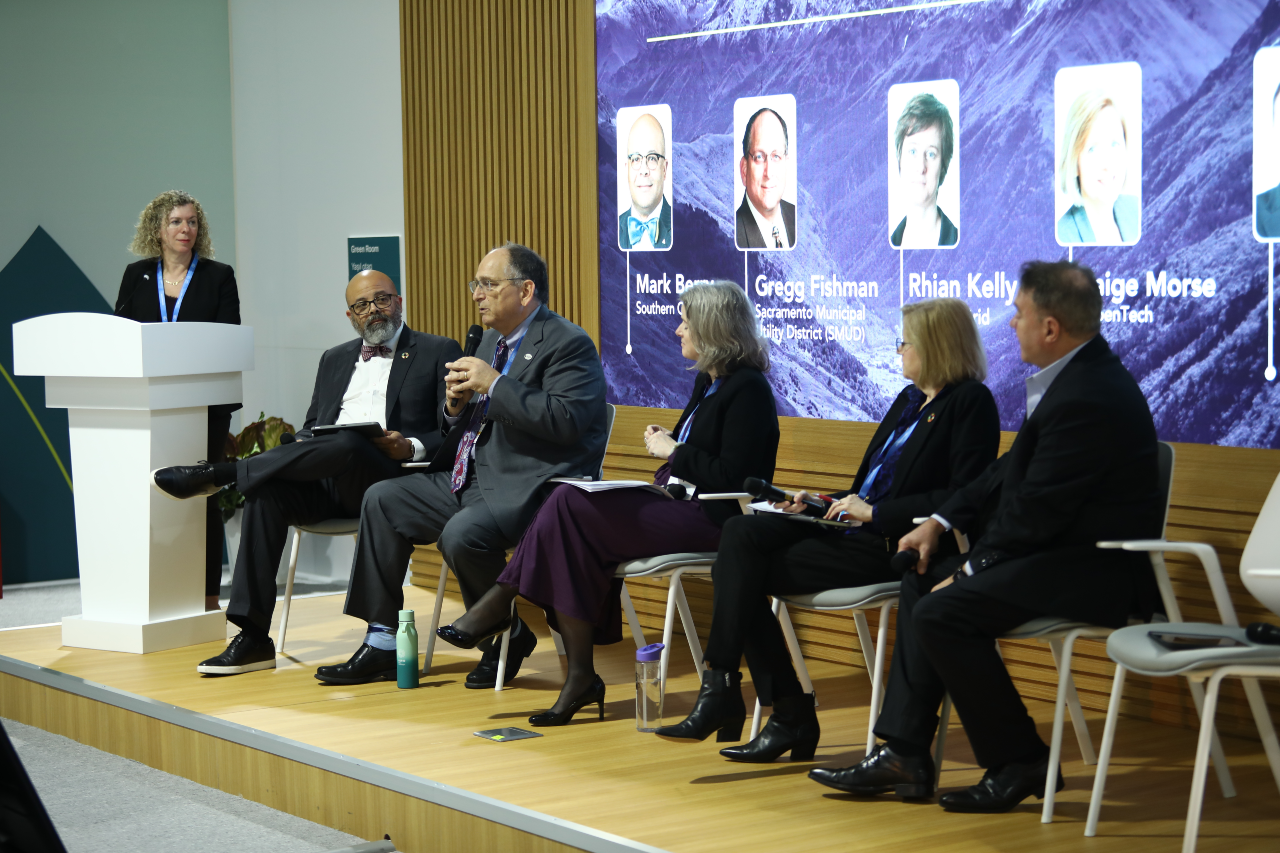The pace of the energy transition – from energy efficiency and clean energy technology deployment to the build-out of critical infrastructure – will depend on the investments that are made in our shared human capital. For this transition to be successful, it also needs to be inclusive, with meaningful community engagement and education and training at the heart of the approach.
This panel investigated best practices by both the public and private sectors to transform the ways in which clean energy and climate solutions are deployed, and how our students and workforce can be best prepared to succeed in a carbon-constrained economy. It will share experiences working in different communities, the types of technical expertise that is needed, and how the benefits of the energy transition – including economic, environmental, and health benefits – can be more broadly shared across city lines and country borders.
Presenters:
- Opening remarks from Pedro Pizarro, President and CEO, Edison International
- Dr. Mark Berry, Senior Vice President of Research, Environment and Sustainability, Southern Company
- Gregg Fishman, Director, Sacramento Municipal Utility District (SMUD)
- Rhian Kelly, Chief Sustainability Officer, National Grid
- Paige Morse, Enterprise Director, Sustainability, AspenTech
- Scott Tew, Vice President, Sustainability and Managing Director, Center for Energy Efficiency and Sustainability, Trane Technologies
Key takeaways:
The pace of the energy transition – from energy efficiency and clean energy technology deployment to the build-out of critical infrastructure – will depend on the investments that are made in our shared human capital. For this transition to be successful, it also needs to be inclusive, with meaningful community engagement, education, and training at the heart of the approach. Workforce development to support the next generation of resilient grid and clean energy technologies plays a critical role in meeting net-zero emissions goals and ensuring that energy communities can access the benefits of the new industries operating in their area.
Workforce development isn’t just about recruitment for clean energy transition leaders – it’s also about investing early, educating students about the career potential created by the clean energy transition, and reskilling existing energy technicians. Gregg Fishman, Director, Sacramento Municipal Utility District (SMUD) described how SMUD is deploying its federal grant funding to develop a technical curriculum at the local community college, helping to establish local expertise in their high-demand skill sets.
Similarly, Paige Morse, Enterprise Director, Sustainability, Aspen Technology, spoke about “Aspen Plus”, a software used in chemical engineering programs around the world, and how Aspen Technology is working with universities to add clean energy like green hydrogen to curricula which have been mostly fossil fuel-focused.
Rhian Kelly, Chief Sustainability Officer, National Grid highlighted the utility’s “Grid for Good” program, which works to incorporate underrepresented communities into the workforce and advocate for STEM students to pursue a career in the energy sector.
Scott Tew, Vice President, Sustainability and Managing Director, Center for Energy Efficiency and Sustainability, Trane Technologies discussed the company’s “Sustainable Futures” STEM programs, which aims to increase access to STEM for girls and eliminate the gender gap in the field. Tew also highlighted the need for more awareness of the benefits of clean energy jobs specifically, citing that there is an 8-20% wage increase in clean energy jobs compared to jobs in the broader energy industry.
DETAILS

